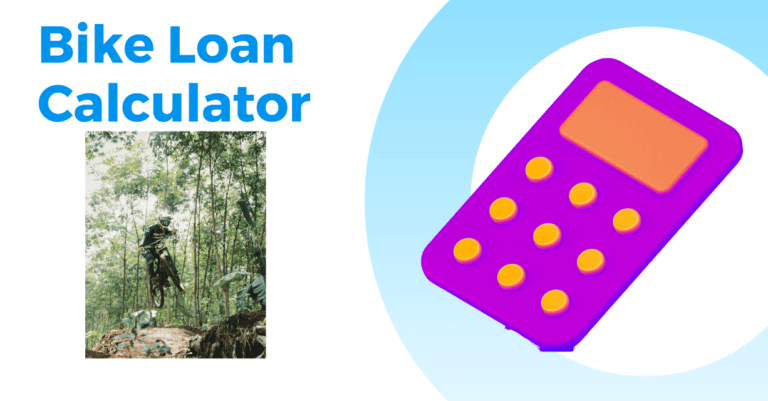Impulse Spending: How To Protect You From Yourself [Aug 2023]

Black Friday is coming! And then comes Christmas, and then the New Year! It is the perfect dream for retailers to get your ‘impulse spending’ nerves activated.
It isn’t without reasons – shoppers spend over $300 a month on Impulse spending.
It is the classic conundrum: all the sellers and marketers are preparing for their big sales hoping you let your impulse spending loose while many of us are dreading our inevitable impulse spending. Who’s going to win?
We all know that impulse spending can be a problem, but many of us may not realize just how much damage it can do to our finances. When we are on our impulse spending spree, we usually buy something that we don’t need and often couldn’t even afford if we stopped to think about it.
In this article, we’ll take a closer look at the effects of impulse spending and explore some ways to get it under control.
Why We Make Impulse Spending Decisions?

We cannot solve a problem we don’t understand, and many of us may not be aware of the reasons behind our impulse spending. Here are some of the most common triggers for impulse buying:
1. We’re Stressed
One of the primary reasons why we make impulse buys is because we’re stressed. When we’re feeling overwhelmed or anxious, we’re more likely to make decisions based on emotion rather than logic. This can lead us to purchase items that we don’t need and can’t afford.
2. We See a Sale
Another reason why we make impulse buys is because we see a sale. retailers often use sales as a way to lure customers into spending more money than they had planned. When we see something that’s discounted, we’re more likely to buy it even if we don’t need it.
3. We’re Bored
Boredom can also lead to impulse buying. When we’re bored, we often turn to shopping as a way to entertain ourselves. We may not be looking for anything specific, but we’ll browse online or in stores until we find something that catches our eye.
4. We Have FOMO
Fear of missing out (FOMO) is another common reason why people make impulse buys. With social media, it’s easy to see what other people are buying and doing. This can create a sense of FOMO, which can lead us to make purchases that we wouldn’t have otherwise made.
How Impulse Spending Hurts Our Finances?

1. It can lead to debt (& very often does)
If you’re not careful, impulse spending can quickly lead to debt. This is because when you spend money on things that you don’t really need, you’re using up money that could be used to pay off debts or save for future goals.
As a result, you may find yourself having to rely on credit cards or loans to cover your expenses, which can end up costing you a lot of money in interest payments.
2. It can prevent you from reaching your financial goals
Another way that impulse spending can hurt your finances is by preventing you from reaching your financial goals. If you’re constantly spending money on unnecessary things, it will be difficult to save up for important goals like buying a home or retiring comfortably.
Instead, you may find yourself having to work longer hours or make sacrifices in other areas of your life in order to make ends meet.
3. It can cause financial stress
In addition to preventing you from reaching your financial goals, impulse spending can also cause financial stress. This is because when you overspend, it can leave you feeling anxious and overwhelmed about your finances.
This can lead to arguments with your spouse or partner about money, and it can even cause problems in other areas of your life such as your work or personal relationships.
4. It can ruin your credit score
Finally, impulse spending can also ruin your credit score. This is because if you overspend and end up carrying a balance on your credit cards, it will damage your credit score. Additionally, if you miss payments or default on loans, it will also have a negative impact on your credit score.
As a result, it’s important to be mindful of your spending habits so that you don’t end up ruining your credit score and making it difficult to get approved for loans in the future.
5. Buyer’s remorse
Impulse spending can lead to buyer’s remorse, which can cause us to spend even more money trying to fix the problem. You got sucked in by the sale and you bought a new TV or some other item that you don’t really need. Then, when you get it home and realize that you don’t really like it, you’re left with the feeling of buyer’s remorse.
6. Bad Quality Products
The nature of impulse buys means you don’t have the time to do research or comparison shopping, so you might end up with a low-quality product. This can be especially true for items like clothes and electronics, where the latest and greatest products can be tempting.
7. It can damage our relationship with money
Finally, impulse spending can damage our relationship with money. When we spend money on things that we don’t need or want, it can lead us to develop a negative relationship with money. We may start to see it as something that we don’t have control over, and this can prevent us from taking a proactive approach to our finances.
3- How Do We Stop From Making an impulse or spontaneous purchase

Question the value you get from the purchase
Before you purchase the new iPhone 14 Pro Max, consider what you would be missing out on if you chose not to buy it. Or better yet, an older version that would still serve your needs for the next three years.
If your initial response is something along the lines of “iPhone 14 has a better camera/battery,” think about whether or not the added value of those features justifies spending an extra $700.
Recognize when you are being played
Marketing experts are also psychology experts. They understand how to create an environment where you will feel compelled to purchase their products.
One way to avoid falling into these marketing traps is to simply recognize when you are being played and resist the urge to purchase. This might mean turning off the TV, avoiding scrolling through your social media feeds, and taking a step back from any promotional emails you receive.
Some common signs that you are being targeted by marketing experts include: emotional manipulation (“You NEED this!”), exaggerated benefits, discounts that never expire, or high-pressure sales tactics.
If you find yourself being drawn in by a sale, try waiting a few days before making a purchase so you can make sure you really need it.
Fear Of Missing Out is a very powerful emotion. That is why advertisements work so well. Learn to recognize when FOMO is being used against you. It typically sounds like these
-Sale ends today!
-Buy now before it’s too late!
-Only a few left in stock!
Sale NEVER ends!
It is NEVER too late!
There is ALWAYS stock!
If you can learn to recognize these tactics, you can avoid falling prey to them.
How Can We Say NO To Impulse Spending?

1. Make a Budget
The first step to saying no to impulse purchases is to make a budget. A budget will help you to track your spending and ensure that you are not spending more money than you can afford. When you are making a budget, be sure to include a line item for discretionary spending. This will allow you to set aside a certain amount of money each month for impulse purchases.
2. Know Your triggers
Another way to say no to impulse purchases is to know your triggers. A trigger is something that causes you to want to spend money impulsively. Common triggers include boredom, stress, and fatigue. If you know what your triggers are, you can avoid them or be prepared with an alternative activity that does not involve spending money.
3. Set a Limit
Another way to avoid impulse purchases is to set a limit on how much money you are willing to spend on them each month. This limit should be based on your overall budget and should be reasonable. Once you have reached your limit, you will need to say no to any further impulse purchases until the next month.
4. Stick to Your Plan
Once you have made a budget and set a limit for yourself, it is important that you stick to your plan. This means being mindful of your spending and avoiding situations where you are likely to make an impulse purchase. If you find yourself in a situation where you are tempted to make an impulse purchase, take a deep breath and remind yourself of your goals.
5. Leave the decision to someone else
If you are worried about making an impulse purchase, ask a friend or family member to come with you when you go shopping (or ask their approval before buying it online). They can help talk you out of buying something you don’t need.
Conclusion
Impulse spending can be harmful to your finances because it can lead to overspending and debt. However, there are ways that you can avoid impulse purchases.
One way is to make a budget and include a line item for discretionary spending. You can also set a limit on how much money you are willing to spend on impulse purchases each month.
Additionally, you can avoid triggers that cause you to want to spend money impulsively. If all of this sounds like too much work, you can ask someone else to come with you when shopping or approve your online purchases before buying them.
With these strategies, you can keep your impulse spending in check and protect your finances.
If you are a blogger, one of the purchases you’ll never regret is an AI writing assistant. Why – because you can always take a FREE trial before you buy one. More on it here.
